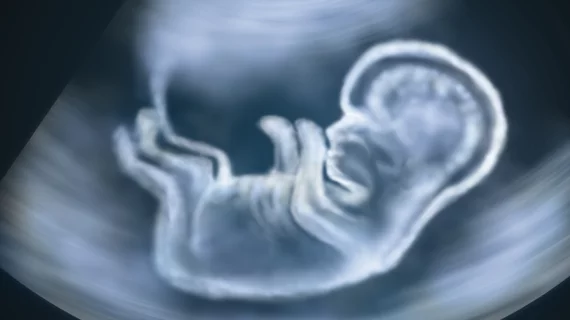It has been long known that smoking during pregnancy affects fetal development, but new research published in Human Reproduction highlights how smoking even before conception can impact growth as well.
Women are discouraged from smoking during pregnancy, as it raises the risk for a myriad or problems for an unborn baby, including preterm birth, low birth weight, birth defects and sudden infant death syndrome (SIDS). But it was recently revealed that smoking even before a woman conceives might also leave embryos vulnerable.
Researchers analyzed the transvaginal ultrasounds of 689 women, treated between 2010 to 2018. The smoking habits of the women were tracked from 14 weeks before conception to 10 weeks after they had conceived (the periconceptional period). During the pregnancies, embryonic morphology on ultrasound was used to track growth and development.
Ultrasound images revealed that by the 10th week of pregnancy, embryonic development had been delayed by a day in the women who smoked 10 or more cigarettes per day. At 20 weeks gestation, fetal measurements were obtained. Those measurements associated periconceptional smoking with shorter femur lengths and larger head circumferences.
The researchers found that the loss of development was not recuperated throughout the pregnancy and the babies in that cohort were born at lower birth weights.
“The impact of periconceptional maternal smoking on delaying embryonic development appears to have a greater effect in the second trimester of pregnancy than at birth,” corresponding author Melek Rousian, from the department of obstetrics and gynecology at University Medical Center in Rotterdam, the Netherlands, and co-authors explained. “We think that perhaps there is some catch-up growth during the second and third trimesters, but the delay in morphological development cannot be fully recuperated during the course of the pregnancy, as is shown by the 20-week ultrasound scans and birth weights.”
The experts emphasized that the results of their study further highlight the importance of smoking intervention programs and smoking cessation prior to conception but imply that further research on periconceptional maternal smoking and embryonic development is still necessary.
You can view the detailed research in Human Reproduction.
More on medical imaging during pregnancy:
Signs of autism can be spotted on routine prenatal ultrasound, research shows
MRI should be a standard diagnostic tool for fetuses with known congenital heart disease
Prenatal MRI reveals ‘major’ brain differences among unborn babies exposed to alcohol
Ultrasound is crucial to prenatal care, yet new evidence reveals ‘substantial’ disparities

